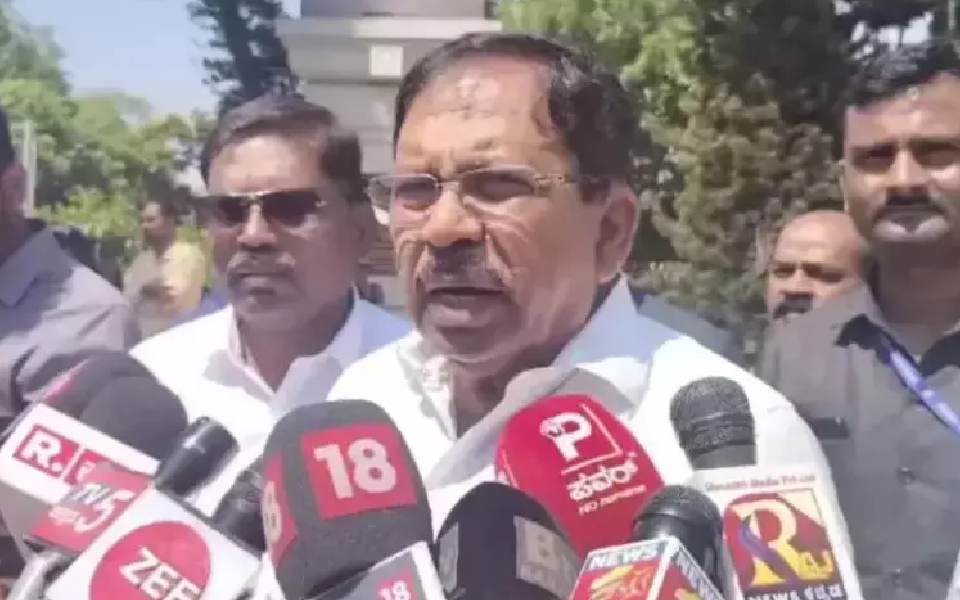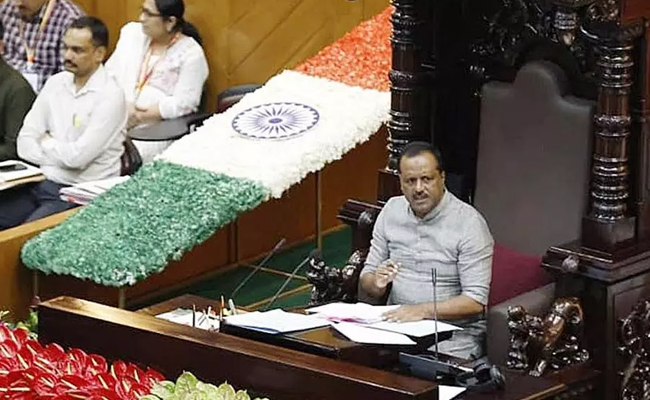Bengaluru, Jul 8: Karnataka Home Minister G Parameshwara on Monday rubbished allegations that the government was trying to cover up the alleged fraudulent allotment of compensatory sites to land losers, including Chief Minister Siddaramaiah's wife Parvathi, by Mysuru Urban Development Authority (MUDA).
Ruling out a Special Investigation Team (SIT) probe into the alleged scam, he noted that the Chief Minister has already clarified on the matter.
"We will not cover up anything, ours (government) is like an open book. There is no need to cover up anything in it. The Chief Minister has clarified, we need not speak about it repeatedly," Parameshwara said in response to a question on whether the government is conspiring to cover up the scam.
Union Minister for Steel and Heavy Industries H D Kumaraswamy last week took an indirect swipe at Deputy Chief Minister and state Congress chief D K Shivakumar stating that the MUDA site allotment scam was exposed by a "person who is eyeing the Chief minister's post".
ALSO READ: Chargesheet in Renukaswamy murder case after gathering sufficient evidence: Home Minister
Reacting to this, Parameshwara said: "Regarding what Kumaraswamy has said, I don't have any information."
Asked if the government will form an SIT to probe the case, he said, "No. There is no need for it. The Chief Minister has given the clarification. What is the need to inquire?".
The BJP has alleged that compensatory sites were also allotted to Siddaramaiah's wife in an upmarket area in Mysuru, which had higher property value as compared to the location of her land which had been "acquired" by the MUDA, and sought his resignation.
The MUDA had allotted plots to Parvathi under a 50:50 ratio scheme in lieu of 3.16 acres of her land, where MUDA developed a residential layout.
The controversial scheme envisages allotting 50 per cent of developed land to the land loser in lieu of undeveloped land acquired for forming layouts.
The BJP has alleged that irregularities to the tune of Rs 4,000 crore had taken place in distribution of sites to land losers by MUDA.
Karnataka Urban Development Minister B S Suresha (Byrathi Suresha) has ordered a probe by a four-member committee.
Let the Truth be known. If you read VB and like VB, please be a VB Supporter and Help us deliver the Truth to one and all.
Hyderabad (PTI): Leader of the Opposition in the Lok Sabha, Rahul Gandhi, will attend the GOAT India Tour event featuring football legend Lionel Messi at the RGI Cricket Stadium here on Saturday evening, Telangana Congress sources said.
A friendly match will be played between the two teams -- Singareni RR9 and Aparna-Messi All Stars. These two teams will be playing a 15-20 minute friendly match and five minutes before the game, Chief Minister Revanth Reddy, a football enthusiast and Messi will join and will dribble the ball together.
Rahul Gandhi will land here on a special flight at 4.30 PM and will proceed to Taj Falaknuma Palace Hotel where Messi will be staying.
After watching the game, Gandhi will leave for the national capital by 10.30 PM.
Elaborate security arrangements are being made for the event at the RGI Cricket stadium.
Rachakonda Police Commissioner Sudheer Babu said security would be provided with 3,000 personnel.





